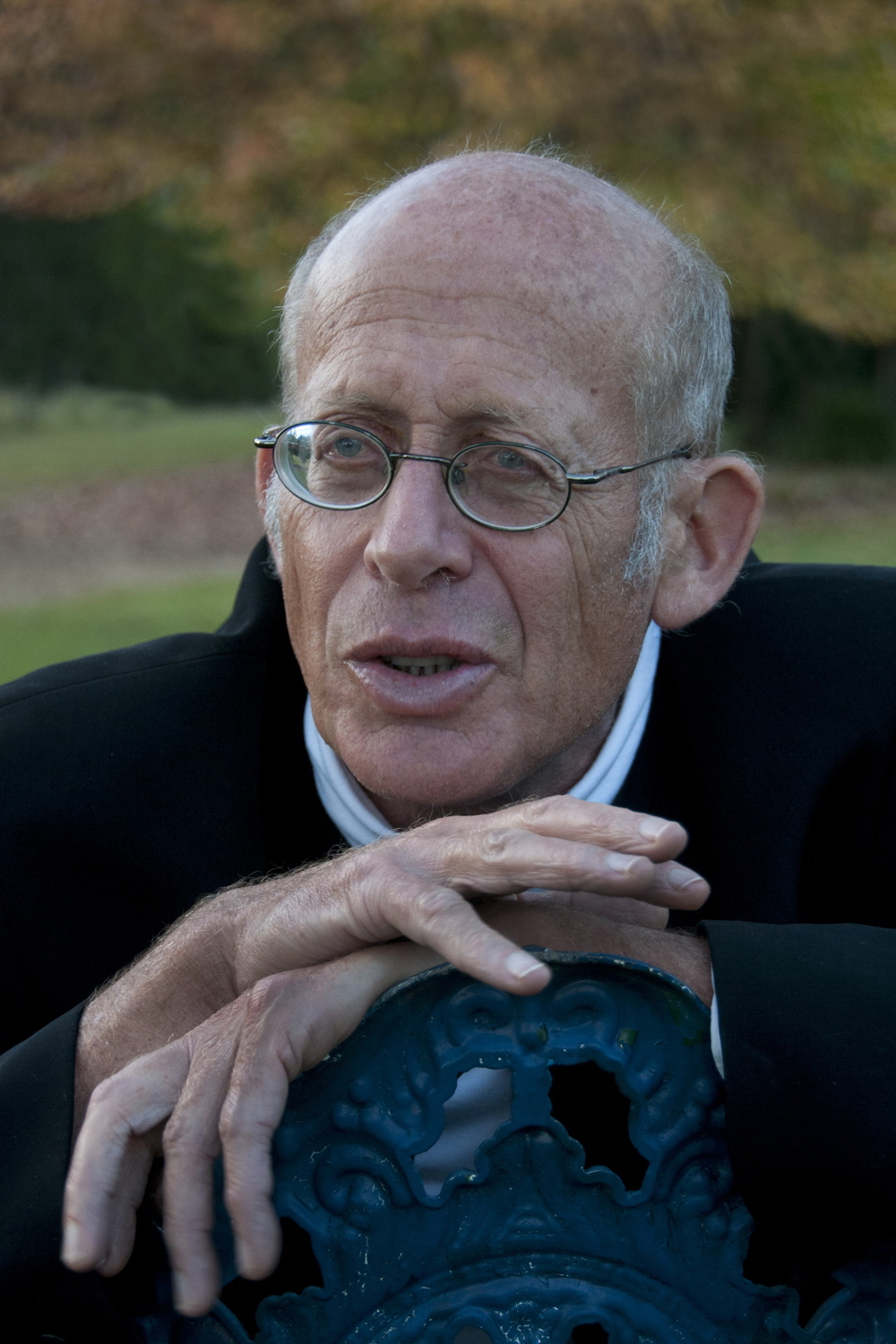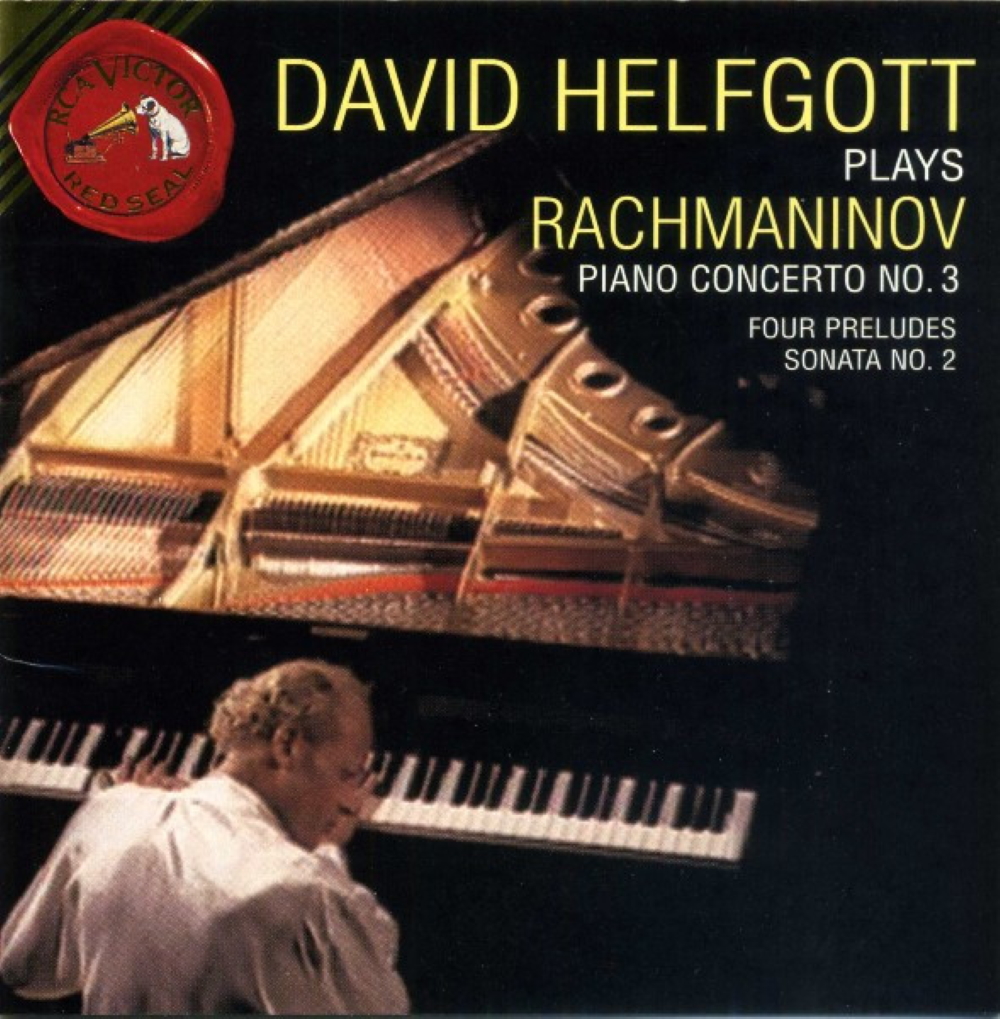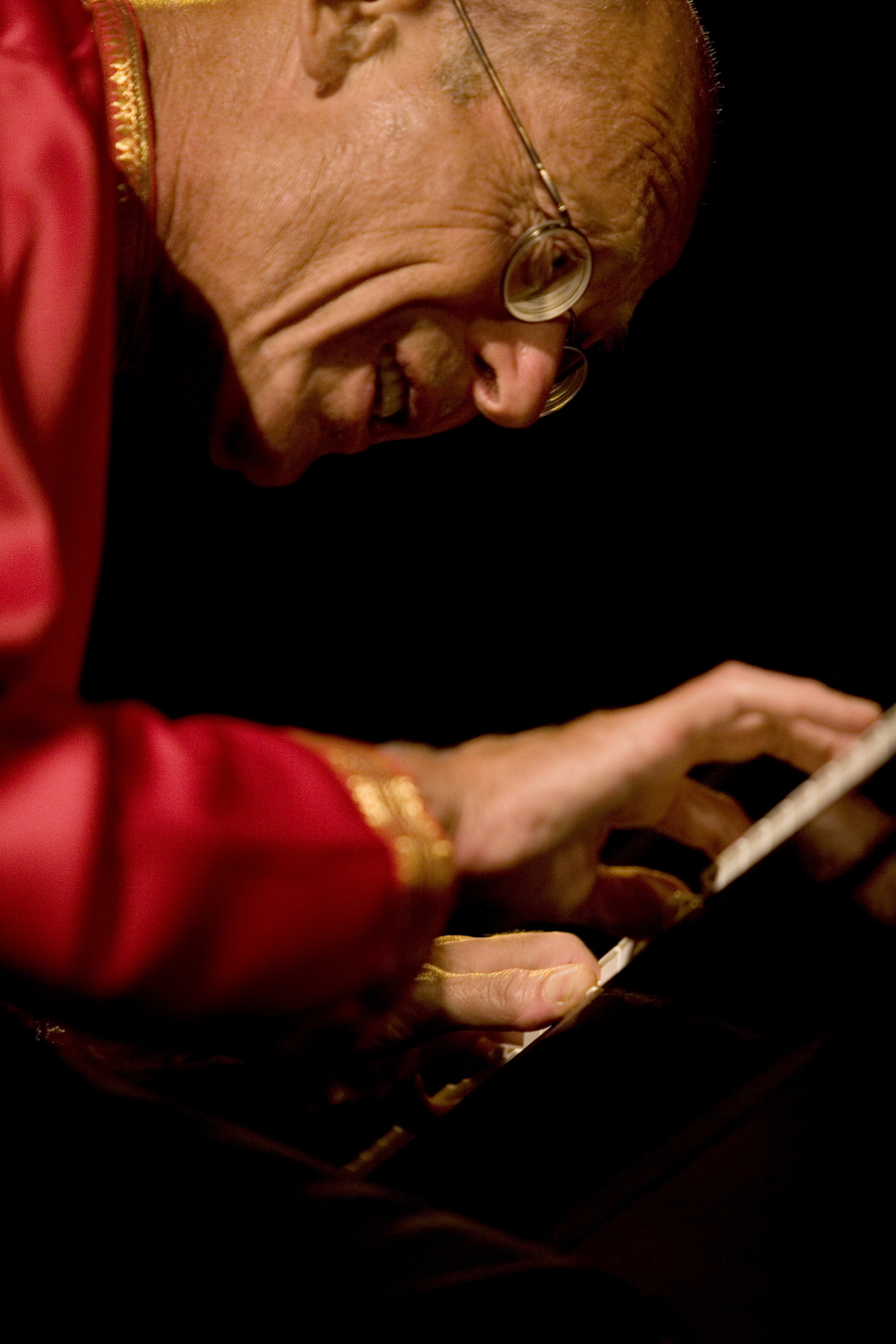David Helfgott
classical pianist
Australia
The opinions about David Helfgott are contradictory: admirers praise him as one of the world's best classical pianists, in a way the 90’s version of Vladimir Horowitz or Arthur Rubinstein; strict serious music critics, however, criticise inaccuracies in the compositional interpretations of the man whose tale of woe was successfully exploited by the media for the Oscar-winning docudrama 'Shine' (1996) and brought him world fame for a limited time.
David Helfgott
classical pianist
Australia

The tragic biography of the native Australian David Helfgott is undisputed. Already in his pre-school years, the second of five children of Polish-Jewish parents (* 19 May 1947 in Melbourne) received lessons from his strict father, who had trained himself on piano and violin. When the little boy failed to win a competition, his teacher took this as a personal injury. At the age of 14, the child prodigy, who had in the meantime won several awards, was offered the opportunity to study in the USA. In 1966, David Helfgott won a scholarship to the Royal College of Music in London. Cyril Smith described him as the most brilliant student of his 25 years of teaching and compared him to Vladimir Horowitz in terms of technique and temperament. This assessment was confirmed by the fact that Helfgott was awarded the Dannreuther Prize for the best performance at university, among other prizes. In 1970, he gave a guest performance at the Royal Albert Hall, celebrating his first public triumph with Sergei Rachmaninov's technically complicated 3rd Piano Concerto. During his time in the British metropolis, symptoms of schizoaffective disorder first appeared in the music student. It combines schizophrenia and manic depression. This was followed by a nervous breakdown. David Helfgott returned to Perth, married Clara Papp in 1971 and worked as a rehearsal pianist for the Western Australian Opera Company. After the marriage was divorced in 1974, he was admitted to an open psychiatric hospital in 1976 and treated for six years. He was forbidden to play the piano during this time. It was not until the beginning of the 1980s that the enthusiastic tea drinker was able to take up the keys again, entertaining the guests of a local wine bar with his art on Saturdays. In Riccardo's Wine Bar, the broke instrumentalist met the astrologer Gillian Murray in 1984 and tied the knot with her in the same year.
David Helfgott has been touring again since 1986. His fate caused an international sensation in 1996 with the film and soundtrack bestseller of the same name, 'Shine'. Sold-out guest performances worldwide were the result. After that, the general public's interest in him flattened out. Regardless of this, he released(s) CDs such as 'Brilliantissimo', 'Brave New World' or 'In Viva' and is still on the road live, but often on a smaller scale than before. The programme consits primarily of romantic piano music, especially works by Mussorgsky, Rachmaninov, Chopin, Liszt, Schumann and Rimsky-Korsakov. He accompanies his performance (no sheet music!) with his unmistakable murmuring and humming along.
Several books have been published about the honorary doctor of music at Edith Cowan University in Perth: His wife Gillian has written 'Love you to bits and pieces: Life with David Helfgott' (1997), his sister Margaret countered with 'Out Of Tune: David Helfgott and the Myth of Shine' (1998) and neighbour Rosanna Every wrote 'David to a Tea: a hell of a lot Helfgott' (2010).
This emotional, impulsive artistic personality also reappeared on the big screen: In January 2016, the documentary film 'Hello, I am David! A Journey with David Helfgott', made by German director Cosima Lange.
The cat lover reads encyclopaedias in his free time, plays chess, swims or loves to watch reports from the TV channel CNN. He lives in the Australian state of Northern New South Wales with Gillian, his second wife. A sculpture almost three metres high stands in his honour in the Council Park of Bellington. This work of art is a symbolic recognition of Helfgott's achievements in the musical and social spheres as well as for the courage with which he mastered his life and thus became a role model and source of strength for many people with similarly difficult fates.
Interview February 2016
Heavy work: when a piano concerto equals ten tons of coal scoops
ABOUT INSPIRATION & INTUITION
The Romanian-French sculptor Constantin Brancusi said about his creation process: “Things are not difficult to make. What is difficult is, putting yourself in the state of mind to make them.“ Before the creativity, there is intuition. Where does this intuition come from, what sparks it? How does it manifest itself – is it only a vague idea or tangible (for example, in pictures)?
I think intuition guides us to our creativity and cannot be easily defined, like love.
Is the timeframe of intuition only temporary or can it be supported by external factors? Inspiration is supported by external factors, intuition is based on internal (conscious versus sub-conscious).
Right ambiance and people.
Is intuition reliant on spontaneity or is it possible to engage this spiritual resource at any time, consciously? If yes, how?
Intuition is spontaneous, but can be encouraged by meditation.
How important is the own physical constitution? Is it true that sadness equals creativity (or vice versa?) To quote the writer Miller Williams: „The saddest joys are the richest ones.“
Good physical condition is very important for a pianist. The British pianist Clifford Curzon did research on the energy required to hit each note of the Rachmaninov ‘Third Piano Concerto’, and multiplying it by the number of notes. He found playing the concerto was equivalent to shovelling ten tons of coal!
Do calm and relaxation further the „best“ or is a tight deadline a stimulant for creativity?
Calm and relaxation, I find, are essential.
Which place/what environment is best for the creation/work process?
I live in the country and find the beauty and quietness of it ideal for preparing my programmes.
What, if there is a deadline, but no intuition?
I work better, when I prepare for a performance. If I have a deadline as it helps with discipline, but I need to allow adequate time to achieve this.
Prior to intuition is inspiration the primary catalyst? If so, what inspires you?
I just feel the music and get into the zone and it just clicks.
According to Philip Roth, “amateurs wait for inspiration while professionals sit down and work.” How do you feel about that?
Tchaikovsky felt, you needed to work every day. Many people say, genius is 90% dedication and 10% inspiration. I think, you need both.
How do you separate the good from the bad; how do you know which ideas to explore further, which ones are maybe even ahead of their time, visionary ideas and which are not?
I choose my music by my feelings for it and if I don’t relate to it, I rarely play it to my highest level.
Do you write down an idea right away, because you might forget?
Yes, I always write down my thoughts and feelings so they do not get lost.
Do you feel, if an idea has the potential to be something big?
Yes.
How long do you ponder an idea before creatively working on it?
I do it spontaneously.
ABOUT CREATIVITY
According to novel-price-awarded author Nelly Sachs “everything starts with yearning.” Do you agree?
Yes, I do. If you don’t yearn, it does not touch you deeply.
Is it magic and fun or torture/blood, sweat & tears to be creative?
It is magic, when it clicks, but does require huge effort.
What is the process like from theory/idea to a practical creation?
Feeling the essence.
Can you force creativity? Are „drive“ and efficiency counterproductive?
No, you must let it unfold, and work at it, but force is not the answer.
How do you stimulate your creativity/are there specific rituals therefore or a muse?
Music is my muse.
When you are in a creative phase, are you working as if in trance?
No, more a calmness and surrendering to the music.
Which is better for creativity: discipline and structured time-management or idleness?
Not idleness. Nothing is achieved by nothing.
Does age and life experience help with creativity or is a younger mind more creative, because it is fresh and untouched by experience? Does age equal more creativity? What about social / cultural heritage?
I believe, we become more mellow with time and life’s experiences add greatly to one’s interpretations.
How important is talent for creativity? Is art of any kind based on talent?
Of course it is. Genius does, what it must.
Do you archive certain ideas to maybe check back when you are in a less creative phase?
Yes. I read, what I have written about the music in quieter moments.
Did you ever revisit an older idea, that you thought would be worthless but it turned out to be great/good? If so, why do you think that is?
I regain my interest in the music and gain a new interpretation of it.
Is it better to be creative on your own, only trust your own instinct, or in a team? However, in a team - how much of your own, personal idea is really left afterwards?
Better to work with others. I have a wonderful Swiss musician who helps refine my music and inspire me to reach greater heights.
Is it true talent to trust other people to fill the gaps of your own deficits/ lack in creativity to produce something significant/great?
If you have a great rapport with a person, then it is invaluable.
Who’s leading in the creativity-process: craftsmanship or spontaneous intuition/inspiration?
Without doubt it is spontaneous inspiration.
Which roles play aspects such as sincerity, authenticity, self-doubt when it comes to creativity and are they useful for the creative process?
Sincerity and authenticity are invaluable guides.
If you would make a pie chart: How are emotion, mind and commercial interests split in percentages when it comes to the creative process?
I think, my pie is full of emotion.
Which is better in a developmental process: speed, meaning to grasp the magic of the moment, or a slow, ripening process when it comes to implementation and elaboration?
Meaning and grasping the magic of the moment.
What is the individual satisfaction based on: a) self-realization and individual fulfilment b) the (artistic) recognition or c) commercial success?
Self-realization and individual fulfilment.
What is your personal motivation for creative activity?
Music is my great passion.
What role does perfection play when it comes to creativity?
Best to aim for it, but it is rarely achieved.
How much does routine influence creativity?
As I have said, dedication is essential to achievement.
Can experience and professionalism make up for lack of creativity? And if so - how much?
Creativity is essential, but professionalism can enrich it.
What role does workmanship play in creativity? Can it be an obstacle?
Only if you lose the soul of the work.
How is it possible to stay true to yourself artistically, but stay innovative at the same time? Can you keep re-inventing yourself without renouncing/denying your style?
I don’t keep re-inventing myself. I stay true to my creative being.
Is it desirable to be ahead of your time or does it cause to be misunderstood (or not understood at all)?
So many of the great musicians were misunderstood early in their careers, but stayed true to themselves and their creativity.
Are creative people especially sensitive, because they have a particular feeling?
Yes, generally they are as one must be.
When does the time come to end the creative process, to set the finalized work free - or is there a never-ending possibility of improvement?
It is never ending for most and the search for perfection is a constant companion.
ABOUT SUCCESS
Is there a rule for successful artistic work, an individual prototype for success? In short: Is success projectable?
Not always. Van Gogh only sold one painting in his lifetime - and that one to his brother. Now his pictures are sold for multiple millions.
When something is successful, how big is the temptation to recycle it, to repeat the successful prototype and not develop further?
That is not a temptation to me as there is always room for improvement.
How big of a role does coincidence play when it comes to mass reception/popularity? Or: why is someone successful and someone else is not, even though they are similarly talented?
Timing and opportunities are essential and the willingness to embrace them.
Should you be able to predict characteristics, needs and desires of your potential audience to be successful?
No. I always have wonderful audiences, because I play to them with an open heart and the joy of sharing my music
How do you stay open to criticism despite success?
I don’t read them. I know, if I have played well or not, but I do listen to my mentors.
Do you have to be driven, do you have to be addicted to achieve the next time, what didn’t work this time?
No. I love to practice and how blessed I am to earn my living by my passion.
Is success dependable from your personality and characteristic traits?
It certainly helps that I rejoice every time I have the opportunity to perform and I run to the piano.
Does success inhere the danger of megalomania?
When pride takes over here, can be problems.
Did you ever deliver something that you thought was mediocre – but was successful?
Yes, one encore I do invariably gets a standing ovation, but at times I feel, it has not been my best playing.
How big is the fear of failure, that a successful run might end and what follows is the fall?
I don’t think about failure as music fills my life.
In your mind, what is the reason for being successful over a long series of time and all of a sudden the success is gone? Is this a matter of the contemporary taste and different times or is it just a natural development that once one is on top for some time, there’s only one way - down?
There are always high and lows in life and so just be positive.
How do you deal with failure? Is it important to have perseverance because success might come later on?
I don’t let thoughts of failure enter my consciousness.
Is it important to have perseverance because success might come later on?
Absolutely, perseverance is essential.
Do you consider failure as a chance to be even more successful later on?
Yes, if you don’t succeed at once, then try, try and try again.
How do you deal with a moment, where your individual, perfect work has been created, maybe has been praised and nominated with all possible awards – what will be next? Or is the personal peak also “the end”?
I live in the now and am grateful for the successes I have had and the privilege of sharing my music.
If this is a possibility – is it even desirable to create the ultimate, perfect work?
Naturally one must aim for the highest, whether one achieves it or not.
MY FAVORITE WORK
“The Rachmaninov Third Piano Concerto represents my greatest success and is my favourite music. Now I am performing it as a piano-duo with Rhodri Clarke and it is a revelation how the beauty of the pianos shine without the orchestra. A truly magical experience.”

